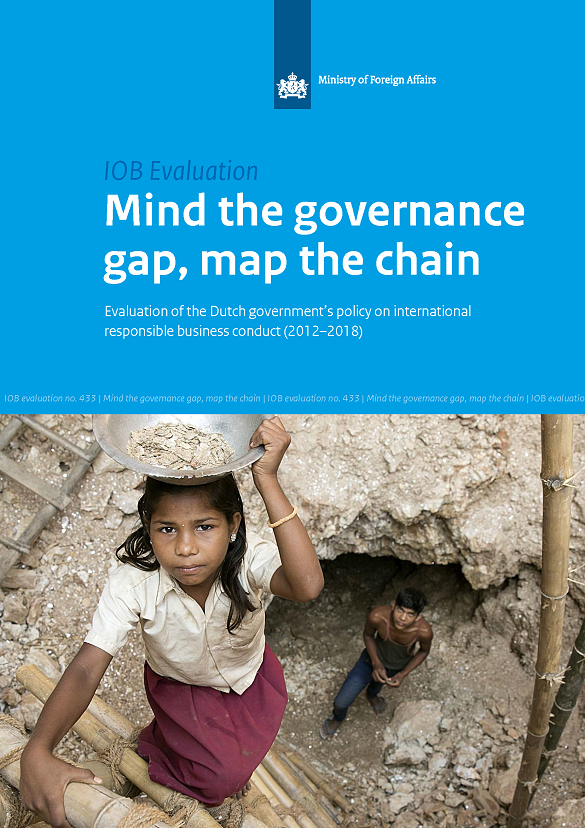Evaluation international RBC policy – Mind the governance gap, map the chain
The government expects companies to respect principles of responsible business conduct (RBC) laid down in the OECD Guidelines for Multinational Enterprises. They should exercise due diligence regarding risks in their value chains such as violations of human rights and environmental damage. In practice, however, violations of these principles are still common. How can governments best stimulate or even enforce responsible business conduct? This IOB evaluation evaluates the Dutch government’s policy on international RBC between 2012 and 2018.
The report examines five aspects of Dutch international RBC policy:
- international RBC agreements in sectors with high risks;
- international RBC conditions in private-sector instruments of the government in the area of aid and trade;
- conditions regarding international RBC for public procurement;
- contributions to international RBC initiatives;
- embassy activities.
The analysis builds on a reconstruction of the policy’s theory of change, extensive desk and literature research, interviews with more than 300 policymakers and (internal and external) stakeholders in the Netherlands and abroad, a survey among Dutch embassies, and country studies of the policy’s results in Bangladesh, Colombia, Ethiopia and India.
Attachments
-
Sub-study – International RBC frameworks for private sector instruments
The government formulated several guidelines for frameworks of private-sector instruments to promote international responsible ...
-
Sub-study – International RBC conditions in procurement by the government
This sub-study reviews the integration of principles concerning international responsible business conduct (RBC) in procurement ...
-
Sub-study – The role of the Netherlands in international RBC initiatives
What was the contribution of The Netherlands to international agreements and legislation in the field of corporate social ...
-
Country studies – Results of the international RBC policy in Bangladesh, Colombia, Ethiopia and India
Bangladesh, Colombia, Ethiopia and India struggle with serious risks for international responsible business conduct (RBC). Four ...
-
Terms of Reference – Evaluation of the Dutch ICSR policy
This evaluation analyses to what extent the Dutch policy on international corporate social responsibility (ICSR) achieved its ...
-
Evaluation National Contact Point OECD Guidelines
The OECD Guidelines for Multinational Enterprises comprise a set of guiding principles and standards for international ...
